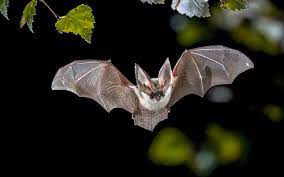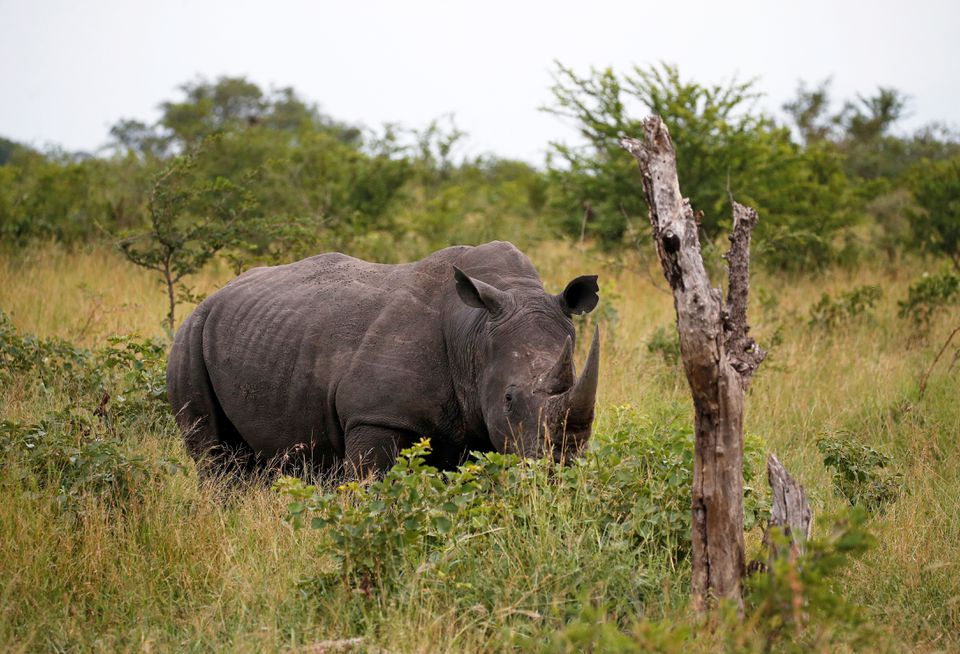- Six Reasons To Bring Millets To The Market!
- Hong Kong Court Makes Landmark Ruling Protecting Transgender Rights
- Substrate Promiscuity Of Fungi Generated Enzyme Laccase Shows Potential In Degrading Industrial Dye Effluents
- Union Minister Of Rural Development Holds A Meeting On ‘Cactus Plantation And Its Economic Usage’
- Ministry Of Tribal Affairs Organised One Day Mega Health Camp ‘Abua Bugin Hodmo-Our Better Health’ At Saraikela Kharsawan, Jharkhand
- Blue Flag Standards For Beaches In The Country
- India-Namibia Sign An MoU On Wildlife Conservation And Sustainable Biodiversity Utilization
- Hydrophobic Ingredients, In Combination With Obsolete Antibiotics, Can Counter Multidrug-Resistant Bacteria
- Promoting Cultivation Of Kala Namak Paddy
International Bat Appreciation Day: Why bats are important for Earth’s ecosystems
Posted by: 2022-04-17 09:02:42 ,By Admin

Established by Bat Conservation International, International Bat Appreciation Day is celebrated on 17 April annually with a mission to educate people the importance of bats to our planet's ecosystems.
Bat Conservation International was founded in 1982 by a group of concerned scientists who recognised the importance of protecting bats. Bats contribute towards controlling pests, create rich fertiliser for landowners, and pollinate fruit and flowers. BCI aims to conserve bats and their habitats through a combination of education, conservation, and research.
Human activities such as deforestation, mining, and irresponsible tourism have caused a substantial decrease in the bats’ population. Bats have often been understudied and misunderstood animals. They are often perceived as disease spreaders when in reality they help keep the numbers of many pests down.
Between 2014 and 2018 the BCI identified 35 critically endangered species of bat that it became a priority to protect. These species are spread throughout the world including the U.S, South America, and The Philippines.
There are a tad over 1400 species of bats worldwide which can be found on nearly every part of the planet except in extreme deserts and polar regions. The difference in size and shape of bats are equally impressive. Bats range in size from the tiny Kitti’s hog-nosed bat that weighs less than a 10c coin to the flying foxes, which can have a wingspan of up to 1.8 metres.
There are 75 known bat species in Southern Africa, of which, 56 species occur in South Africa. Of the 56 species, 39 are found in the northern part of South Africa, which comprises Gauteng, Limpopo, Mpumalanga and part of Northwest Province.
Without bats, we would not have bananas, avocados and mangoes and over 300 species of other fruit which depend on bats for pollination. Bats help spread seeds for nuts, figs and cacao, the main ingredient in chocolate.
Bats are also excellent pest control agents eating their body weight in insects every night. This insect-heavy diet helps foresters and farmers protect their crops from pests and help control disease spreading flies and mosquitoes.
This might not be relatively well-known but bats are the only flying mammal in the world. While the flying squirrel actually just glides for short distances, bats are true fliers. A bat’s wing resembles a modified human hand, imagine the skin between your fingers larger, thinner and stretched. This flexible skin membrane that extends between each long finger bone and many movable joints make bats agile fliers.
Many of us may hear clicking sounds when outside on a calm night. These are bats using echo-location to find food and communicate, very much like dolphins and whales do in the ocean. The concept is simple enough, the clicking sound bounces off something, an insect flying ahead of the bat, and the sound waves return to the bat allowing it to pinpoint exactly where its next meal is.
It is a common misconception that bats are blind. In fact, bats have pretty good eyesight which allows them to see much better in darkness than we can. It may be time to dispel the term “as blind as a bat.”
Of the 74 species found in the sub-region of southern Africa, 20 species of insectivorous bats and 2 species of fruit-eating bats are listed as Threatened in the IUCN Red List of Threatened Animals. Of these 9 are listed as either Critically Endangered, Endangered or Vulnerable, meaning that they face a high risk of extinction in the wild.
The uncontrollable, irrepressible fear of bats still exists today and is often the result of centuries of prejudice, misinformation and ignorance about bats. Dracula and other horror stories have contributed greatly to these misconceptions causing people to fear them and therefore be unconcerned about their conservation. In some parts of South Africa it is believed that bats are linked to superstitions and acts relating to witchcraft which often lead to the bats being killed.
The next time you see or hear a bat, take a second to appreciate how amazing it is that we share this planet with a flying mammal that uses echo-location, helps to control pests and pollinates our fruit trees while asking for nothing in return.
Read more: Click Here
You may like similar news

Mitigating human-elephant conflict key challenge this World Elephant Day
World Elephant Day will be celebrated on Friday bringing into focus the challenging task of ensuring...

India-Namibia sign an MoU on wildlife conservation and sustainable biodiversity utilization
Government of India and Government of the Republic of Namibia have entered into a Memorandum of Unde...

After 40 years of extinction, rhinos return to Mozambique
JOHANNESBURG, July 4 (Reuters) - Over four decades after they became extinct locally, rhinos are roa...

ZSI scientists find a new eel species from Midnapore
Scientists of Estuarine Biology Regional Centre, Zoological Survey of India have discovered a new sp...

Tiger family is starting a new life after 15 years living in a train carriage
By Doloresz Katanich with AP & AFP • Updated: 18/03/2022 Four Bengal tig...









